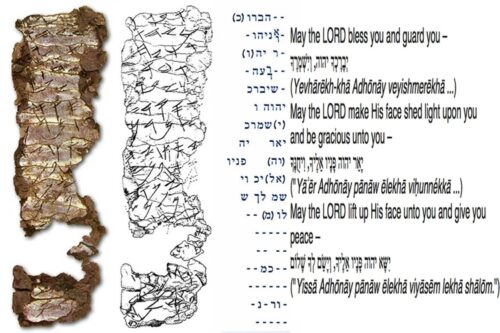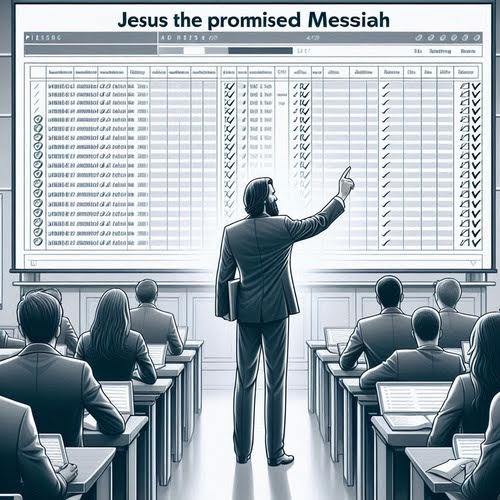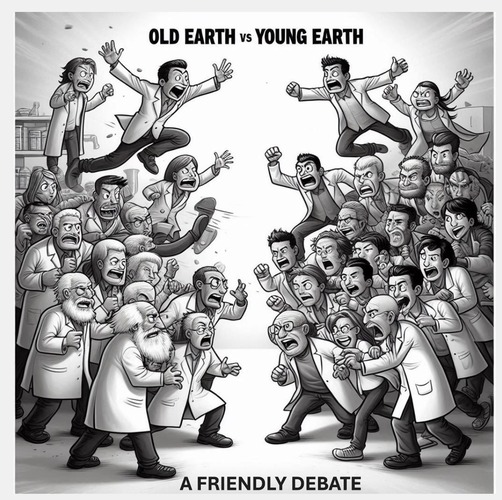Was Jehu Condemned for Obedience? What Was His Sin?
One of Scripture’s most perplexing contradictions appears in the story of Jehu. God explicitly commands him to destroy Ahab’s house (2 Kings 9:7-10), yet later condemns him for the very bloodshed he was ordered to carry out (Hosea 1:4). This apparent inconsistency has troubled many a believer. Did God change His mind? Was the prophet mistaken? The Reformed tradition offers a compelling resolution: Jehu wasn’t condemned for his obedience, but for how his sinful heart corrupted that obedience.
GOD’S LEGITIMATE COMMISSION
When God commissioned Jehu through the prophet Elisha, the mandate was clear and justified. Ahab’s dynasty had systematically led Israel into Baal worship, murdered God’s prophets, and persecuted the faithful (1 Kings 18:4, 21:25-26). Divine judgement wasn’t only appropriate but necessary. As Paul reminds us, God’s wrath against sin is righteous (Romans 1:18), and He sovereignly chooses His instruments of judgement.
The commission itself was specific: eliminate Ahab’s house for their covenant-breaking apostasy (2 Kings 9:7-10). This wasn’t arbitrary violence but covenant justice—God holding His people accountable to their sacred commitments. Throughout Scripture, God uses human agents to accomplish His purposes, from Assyria punishing Israel (Isaiah 10:5-6) to Babylon judging Judah (Jeremiah 25:9).
THE EXECUTION: FROM OBEDIENCE TO EXCESS
Initially, Jehu appeared to fulfil his divine mandate. He killed King Joram, Queen Jezebel, and 70 sons of Ahab (2 Kings 9:24-10:11). So far, so good. But then something shifted. Jehu encountered 42 relatives of Judah’s King Ahaziah and slaughtered them all (2 Kings 10:12-14)—men who weren’t part of his original commission. He deceived Baal worshippers into gathering for a supposed sacrifice, then massacred every attendee, not just the leaders (2 Kings 10:18-28).
This pattern reveals a crucial truth: human nature corrupts even divinely ordained tasks. What began as righteous judgement devolved into excessive vengeance. Jehu had moved beyond his mandate, driven by motives that went far deeper than simple obedience.
JEHU’S REAL SIN: A CORRUPT HEART
External Compliance Without Heart Loyalty: Jehu was zealous in carrying out the purge, even boasting, “Come with me, and see my zeal for the Lord” (2 Kings 10:16). Yet his heart was never truly loyal to God. While he destroyed Baal worship outwardly, he deliberately maintained Israel in idolatry by preserving Jeroboam’s golden calves at Bethel and Dan (2 Kings 10:29-31).
This reveals a fundamental Reformed principle: the morality of an act is judged not merely by its external conformity, but by the heart’s motive (Westminster Confession 16.7). Jesus Himself condemned those who honour God with their lips while their hearts remain far from Him (Matthew 15:8). Jehu’s selective obedience exposed his true priorities—political convenience, not covenant faithfulness.
Using God’s Command for Personal Ambition: The “blood of Jezreel” that Hosea condemns (Hosea 1:4) refers to Jehu’s exploitation of God’s command to secure the throne for himself. Notice his calculated speech in 2 Kings 10:9-10, where he distances himself from responsibility while simultaneously establishing his legitimacy as king. Jehu transformed divine justice into a political coup, using God’s name to advance his own dynasty.
This manipulation of divine command for personal gain represents a fundamental corruption of his calling. Rather than serving as God’s humble instrument, Jehu became an opportunist who weaponised religious duty for political advantage.
DIVINE JUSTICE VS HUMAN VENGEANCE
When Hosea declares God will “avenge the blood of Jezreel on the house of Jehu,” he’s not contradicting the earlier command. Instead, he’s revealing God’s perfect knowledge of human hearts. God condemns not the original obedience, but the excess that flowed from Jehu’s corrupt motives.
This pattern appears throughout Scripture. God used Assyria to judge Israel, then judged Assyria for their prideful brutality (Isaiah 10:12-15). He employed Babylon to discipline Judah, then punished Babylon for their cruel excesses (Jeremiah 25:12-14). Divine sovereignty and human responsibility coexist perfectly—God accomplishes His purposes through human agents while holding those agents accountable for how they execute His will.
REFORMED THEOLOGY VINDICATED
This account beautifully illustrates core Reformed principles.
- God’s Sovereignty Vs Man’s Free Will: God’s sovereignty remains absolute—He accomplished His purpose of judging Ahab’s house. Yet human responsibility persists—Jehu bears full accountability for his corrupt heart and excessive actions. Total depravity means that even when serving God’s purposes, we often introduce sinful motives that require judgement.
- Progressive Revelation: The progressive revelation principle also applies here. Later prophets often clarify earlier historical events, providing theological interpretation that wasn’t initially apparent. Hosea’s condemnation doesn’t contradict Kings; it interprets it, revealing the spiritual reality behind the political events.
THE LESSON FOR TODAY
Jehu’s story warns every believer who serves God’s purposes. Being used by God doesn’t exempt us from accountability. We must examine our motives, stay within biblical bounds, and guard against using God’s work to advance our own agendas.
The question isn’t whether God commanded Jehu’s initial actions—He clearly did. The question is whether Jehu’s heart remained pure in executing that command. Scripture’s answer is unambiguous: external obedience without heart loyalty ultimately leads to condemnation. True faithfulness requires not just doing God’s will, but doing it with godly motives and within proper limits.
WAS JEHU CONDEMNED FOR OBEDIENCE? RELATED FAQs
Do scholars interpret Jehu’s condemnation differently? Some Reformed commentators, including Matthew Henry, emphasise Jehu’s condemnation came specifically for the “manner” of his execution rather than the execution itself. John Calvin notes that while God approved the justice, He condemned the “cruel and treacherous” methods Jehu employed beyond his commission. However, the consensus remains that mixed motives and excessive zeal, not the original obedience, brought divine judgment.
- Why did God wait so long to judge Jehu’s house if his sin was immediate? God’s timing reflects His patient justice and covenant faithfulness. Jehu’s dynasty lasted four generations (the longest in Israel’s northern kingdom), fulfilling God’s promise for his initial obedience (2 Kings 10:30). Yet divine justice ultimately prevailed under Jehu’s great-great-grandson Zechariah, who was assassinated after only six months (2 Kings 15:8-12), demonstrating that God’s mills grind slowly but surely.
- How do we reconcile God commanding violence with New Testament ethics? Reformed theology distinguishes between God’s role as cosmic judge and individual Christian ethics. Under the Old Covenant, God directly commissioned specific acts of temporal judgment as part of His theocratic rule over Israel. In the New Covenant era, individual believers are commanded to love enemies (Romans 12:19-21), while God still executes justice through civil authorities (Romans 13:1-4). The principle remains: vengeance belongs to the Lord alone.
What does Jehu’s story teach about religious zeal without genuine conversion? Jehu exemplifies the danger of external religious performance without heart transformation. His selective obedience—destroying Baal while maintaining golden calf worship—reveals that his zeal served political convenience rather than covenant loyalty. True conversion produces comprehensive obedience, not partial compliance that serves self-interest. As the Westminster Confession states, saving faith produces “obedience to the commands, trembling at the threatenings, and embracing of the promises of God.”
- Did Jehu’s prophetic anointing guarantee his spiritual state? No. Reformed scholars consistently distinguish between God’s sovereign use of individuals and their personal spiritual condition. Balaam prophesied truly while remaining unregenerate (Numbers 22-24), and Saul prophesied after the Spirit departed from him (1 Samuel 19:23-24). God’s gifts and callings serve His purposes regardless of the recipient’s heart condition. Jehu’s anointing made him God’s instrument, not necessarily God’s child.
- How does Jehu’s account relate to the doctrine of common grace? Jehu illustrates common grace—God’s goodness extended to all humanity, enabling even unregenerate people to perform actions that serve His purposes and benefit society. Through common grace, God can use unbelievers to execute justice, preserve order, and accomplish His providential will. However, as Jehu demonstrates, common grace doesn’t equal saving grace, and external compliance with God’s commands doesn’t guarantee eternal salvation or exemption from judgement.
What practical warnings does Jehu’s story offer to Christian leaders today? Jehu’s account warns against using ministry or Christian service to advance personal agendas. Leaders must regularly examine their motives, ensuring they serve God’s glory rather than their own ambition or convenience. The story also cautions against selective obedience—we cannot choose which aspects of God’s will to follow based on what benefits us most. Finally, it reminds us that being used by God in significant ways doesn’t guarantee our spiritual standing or exempt us from accountability.
WAS JEHU CONDEMNED FOR OBEDIENCE? OUR RELATED POSTS
Editor's Pick
The Ketef Hinnom Scrolls: An Accidental Yet Phenomenal Find
SMALLER THAN OUR PALM, OLDER THAN THE DEAD SEA SCROLLS In 1979, a bored 13-year-old volunteer at an archaeological dig [...]

Caught in Adultery: How Reliable Is the John 8 Story?
"Let him who is without sin cast the first stone." Few Bible scenes capture Jesus' wisdom and grace quite like [...]

What Did the Inscription on Jesus’ Cross Really Say?
A REFORMED RESPONSE TO CLAIMS OF GOSPEL CONTRADICTIONS Sceptics love to point out what they see as a glaring contradiction [...]

Biblical and Systematic Theology: Why Do We Need Both?
TWO LENSES, ONE TRUTH Picture this familiar scene: A seminary student sits in the library, torn between two stacks of [...]

The Mysterious Two: Who Are the Anointed Ones in Zechariah?
Picture this: a golden lampstand blazing with light, flanked by two olive trees that pour oil directly into the lamp’s [...]

Regeneration Or Faith? Which Comes First in Salvation?
In the moment of salvation, does God regenerate our hearts first, or do we believe first? How we answer this [...]

Interracial Marriages: Does God Frown On Them?
The question hits close to home for many Christian couples and families today. As our churches become increasingly diverse, believers [...]
‘Because Angels Are Watching’: What Does 1 Corinthians 11:10 Mean?
“For this reason the woman ought to have authority on her head, because of the angels” (1 Corinthians 11:10, ESV). [...]

Why Does God Torment Saul With An Evil Spirit?
Would a holy God send an evil spirit to torment someone? This theological puzzle confronts us in the biblical account [...]

Paul’s Teaching on Women’s Roles: 1 Timothy 2:12 Explained
YARBROUGH’S BIBLICAL CASE FOR COMPLEMENTARIANISM In a world of shifting cultural values, few biblical texts generate as much discussion as [...]
SUPPORT US:
Feel the Holy Spirit's gentle nudge to partner with us?
Donate Online:
Account Name: TRUTHS TO DIE FOR FOUNDATION
Account Number: 10243565459
Bank IFSC: IDFB0043391
Bank Name: IDFC FIRST BANK








